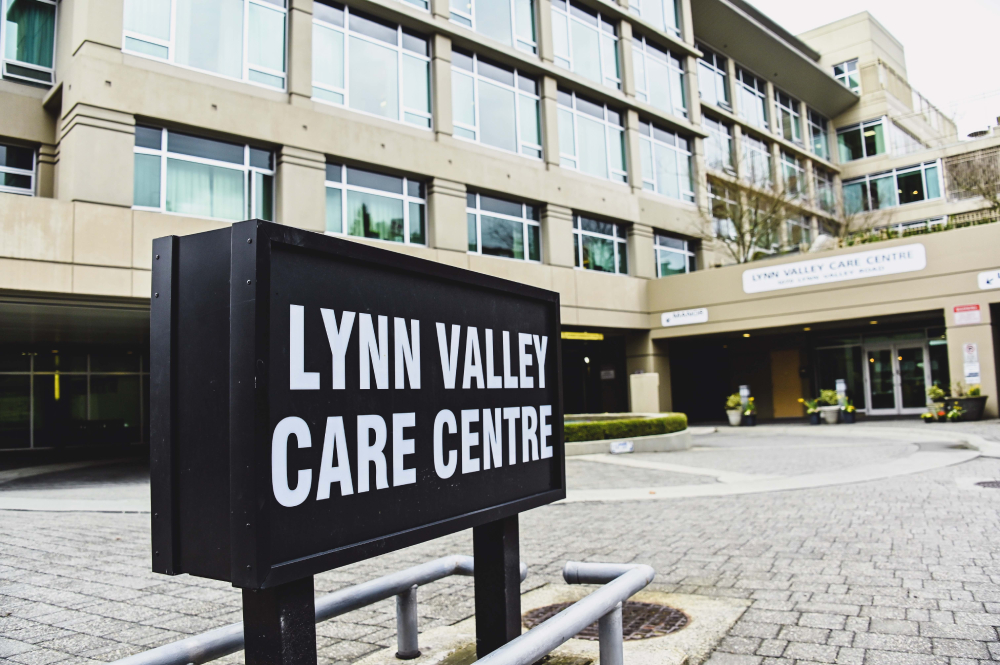COVID-19 cases in care homes with even the most stringent screening policies are going undetected, according to a new study, highlighting the need for B.C.’s universal and strict virus-control measures.
The study looked at two facilities that suffered early pandemic outbreaks in the province, where 80 residents and staff tested positive for the virus.
But blood tests at the same two sites in the spring revealed at least 30 more people had COVID-19 antigens that indicated a previous infection. They had either tested negative or not been tested at all due to lack of symptoms.
The results show that treating every person as a potential source of transmission — even without symptoms or a positive test — was the right decision, the research suggests. B.C.’s sweeping restrictions on care homes included making all staff wear PPE and locking down entire wings when someone exhibited symptoms.
And Dr. Rohit Vijh, the study’s lead author, says the results indicate that testing should be based on broader criteria to ensure as many cases as possible are identified.
“Long-term care facilities need to start, if they're not already doing it, to take this precautionary and proactive approach to implementing these universal cautions,” said Vijh, a public health and preventative medicine resident at the University of British Columbia.
“And that can be resource intensive, but it is ultimately something that, as evidenced through the study, has been able to prevent subsequent infections.”
Despite indications that B.C. averted a worst-case scenario in the early weeks of the pandemic, COVID-19 continues to ravage care facilities.
Last Thursday the province suffered its most deadly pandemic day. Twenty-eight people died of COVID-19, and all but two were residents of long-term care.
There are currently more than 1,000 residents and 600 staff who are COVID-19 positive across 58 care-facility outbreaks, provincial health officer Dr. Bonnie Henry said Thursday.
Right now in Canada, the definition of a probable case is based on an exposure risk, like working in a long-term care facility, and either a fever or a new or worsening cough.
But the study found people who reported less common symptoms during the outbreaks studied, such as body aches, headaches and lost appetites, were more likely to test positive for COVID-19 antigens.
Vijh says Canada should adopt the wider definition of a probable case recognized by the Centers for Disease Control in the U.S., which counts symptoms like headaches as clinical evidence in high-exposure environments like care facilities.
“If you have such a hyper-specific approach, you may miss people that may contribute to transmission.”
In addition to taking blood samples from 48 per cent of staff and 39 per cent of residents across the facilities, the voluntary study interviewed them about their symptoms during the outbreaks in question and consulted clinical records.
The results don’t suggest someone with a headache and very little exposure risk is likely to have COVID-19, said Vijh. But they do indicate people working in the midst of an active outbreak should monitor their bodies for any symptoms at all.
Particularly for long-term care residents who often have multiple complex health needs, paying close attention can help care staff notice when something as small as a headache could be a symptom of something worse.
While the study shows swift and strict measures are effective at limiting transmission, restrictive policies continue to devastate the physical and mental well-being of residents and their loved ones, whose visits are limited. Residents are allowed one designated visitor, and the frequency and length of visits are strictly limited.
Henry said she was open to allowing more frequent visits by the designated visitors, but didn’t say when those changes would begin when asked by The Tyee earlier this month.
Caregivers — desperate to see their loved ones before what could be their last holiday season — and Seniors’ Advocate Isobel Mackenzie have been calling for rapid testing to ensure staff and visitors don’t bring the virus into the facilities as part of a move to ease restrictions.
Public health officials have begun a pilot project to use rapid testing to screen staff in the Lower Mainland. Health Minister Adrian Dix said last week the program would be implemented more widely if it proves effective.
Vijh said his study shows every extra layer of protection can save lives, and rapid testing could be an additional step.
“No single tool, whether it's COVID testing, whether it's using symptom screening, whether it's serology, is perfect on its own, and it requires us to just be very cautious,” said Vijh.
He also hopes wider symptom-screening criteria will help staff with less-common symptoms take paid sick leave and be able to stay home.
Targeting people on narrow criteria is defended as more efficient, Vijh noted.
“But I think what the study showed was that you're still going to miss people. So you're going to have to take this [wide] approach regardless,” he said.
“And that approach is probably what contributed to B.C. not having the same magnitude of cases in long-term care, especially early on in the pandemic, compared to Ontario and Quebec.” ![]()
Read more: Coronavirus
















Tyee Commenting Guidelines
Comments that violate guidelines risk being deleted, and violations may result in a temporary or permanent user ban. Maintain the spirit of good conversation to stay in the discussion.
*Please note The Tyee is not a forum for spreading misinformation about COVID-19, denying its existence or minimizing its risk to public health.
Do:
Do not: